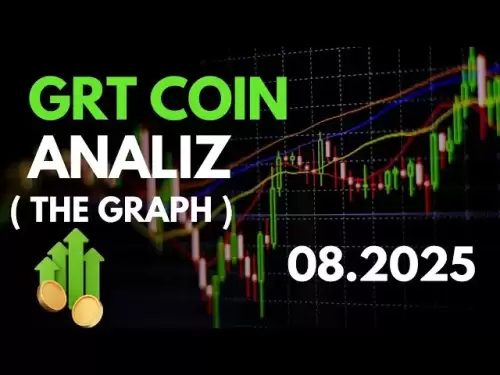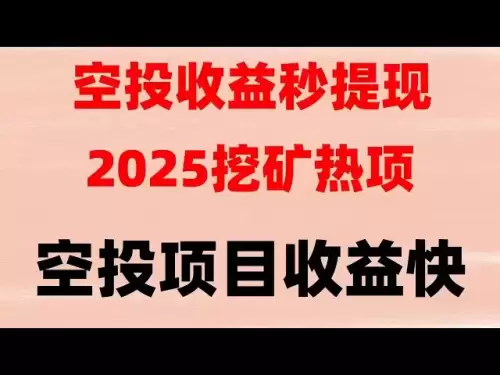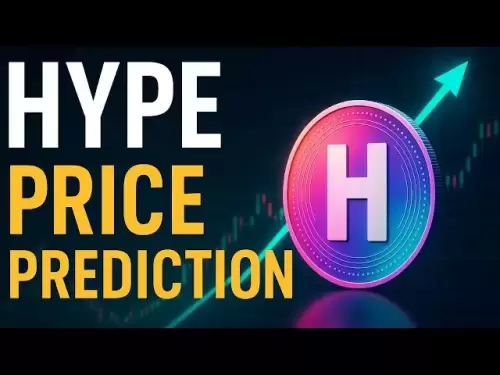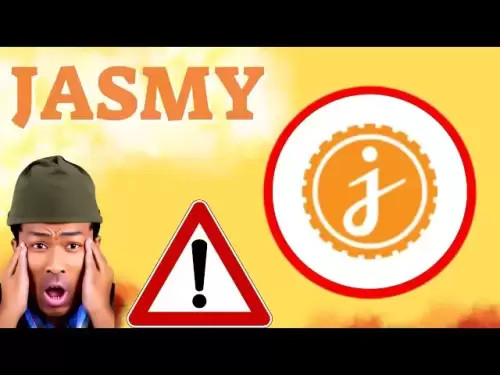-
 Bitcoin
Bitcoin $119300
2.40% -
 Ethereum
Ethereum $4254
-0.20% -
 XRP
XRP $3.184
-1.38% -
 Tether USDt
Tether USDt $1.000
0.00% -
 BNB
BNB $803.9
0.58% -
 Solana
Solana $183.1
1.50% -
 USDC
USDC $0.0000
0.01% -
 Dogecoin
Dogecoin $0.2339
-2.87% -
 TRON
TRON $0.3384
0.88% -
 Cardano
Cardano $0.8018
-0.29% -
 Hyperliquid
Hyperliquid $45.13
3.14% -
 Chainlink
Chainlink $22.10
0.96% -
 Stellar
Stellar $0.4439
-0.94% -
 Sui
Sui $3.875
-0.73% -
 Bitcoin Cash
Bitcoin Cash $570.7
0.24% -
 Hedera
Hedera $0.2589
-2.90% -
 Ethena USDe
Ethena USDe $1.001
-0.01% -
 Avalanche
Avalanche $23.83
-1.73% -
 Litecoin
Litecoin $123.8
2.61% -
 Toncoin
Toncoin $3.351
-1.13% -
 UNUS SED LEO
UNUS SED LEO $9.103
1.13% -
 Shiba Inu
Shiba Inu $0.00001356
-1.40% -
 Uniswap
Uniswap $10.93
-0.19% -
 Polkadot
Polkadot $4.057
-1.97% -
 Dai
Dai $1.000
0.01% -
 Cronos
Cronos $0.1646
4.66% -
 Ethena
Ethena $0.7974
8.11% -
 Pepe
Pepe $0.00001208
-2.89% -
 Bitget Token
Bitget Token $4.445
-1.70% -
 Monero
Monero $268.8
-2.00%
What is the biggest threat to the future of Gods Unchained (GODS) coin?
The in-game economy of Gods Unchained remains unstable, posing a potential threat to the stability of its GODS cryptocurrency.
Dec 25, 2024 at 04:00 am
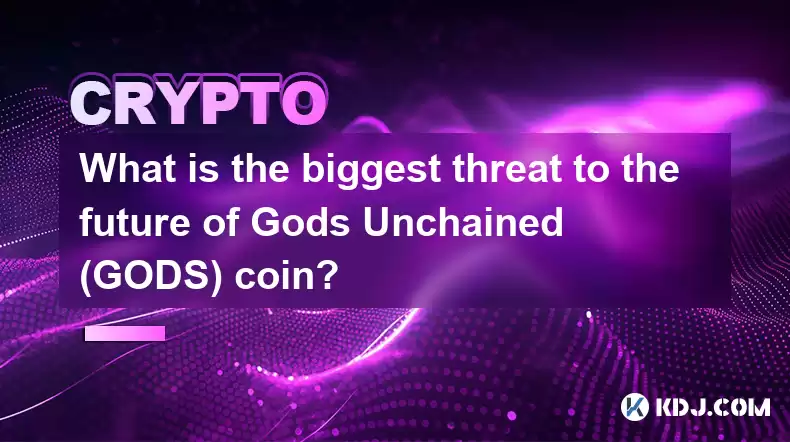
Key Points:
- In-game economy instability
- Competition from established card games
- Regulatory landscape uncertainty
- Potential market manipulation
- Lack of mainstream adoption
- Security risks
- Team and development issues
Biggest Threats to the Future of Gods Unchained (GODS) Coin:
1. In-Game Economy Instability:
- The value of GODS is heavily tied to the success of the Gods Unchained game.
- If the game experiences a decline in popularity or player activity, the demand for GODS may drop correspondingly.
- This could lead to a decline in its value and make it difficult for investors to profit.
2. Competition from Established Card Games:
- Gods Unchained faces strong competition from established card games such as Magic: The Gathering and Hearthstone.
- These games have a large player base and well-established communities.
- Gods Unchained needs to differentiate itself and offer compelling features to attract players from these existing games.
3. Regulatory Landscape Uncertainty:
- The cryptocurrency industry is facing increasing regulatory scrutiny worldwide.
- If GODS is classified as a security or other regulated asset, it could face significant regulatory burdens.
- This could hinder the growth of the Gods Unchained ecosystem and limit its potential market value.
4. Potential Market Manipulation:
- Like many cryptocurrencies, GODS is susceptible to market manipulation.
- Large investors or groups can engage in practices like wash trading or pump-and-dump schemes to artificially inflate or deflate its price.
- This can lead to volatility and uncertainty for investors.
5. Lack of Mainstream Adoption:
- Despite its innovative gameplay and blockchain integration, Gods Unchained has yet to achieve widespread mainstream adoption.
- Breaking into this market requires significant marketing efforts and strategic partnerships.
- Failure to gain mainstream recognition could limit the long-term growth of GODS.
6. Security Risks:
- Cryptocurrency exchanges and wallets are potential targets for hacks or security breaches.
- If the exchanges that support GODS are compromised, it could result in loss of investors' funds.
- GODS users should take appropriate measures to protect their assets, such as storing them in secure wallets.
7. Team and Development Issues:
- The success of Gods Unchained depends heavily on the competence and execution of its development team.
- Any issues or delays in game development or roadmap execution could negatively impact player confidence and the value of GODS.
- Investors should assess the team's track record, experience, and commitment to the project.
FAQs:
1. What factors contribute to the instability of the Gods Unchained economy?
- Fluctuations in player activity
- Changes in the reward mechanisms
- Introduction of new cards and gameplay features
2. How does competition from other card games affect Gods Unchained?
- Divides the player base
- Limits the growth potential
- Forces Gods Unchained to innovate and differentiate itself
3. What are the potential regulatory risks facing GODS?
- Classification as a security
- Restrictions on trading and distribution
- Compliance with anti-money laundering and know-your-customer regulations
4. How can GODS prevent market manipulation?
- Implement robust anti-manipulation measures
- Partner with reputable exchanges
- Educate the community about responsible trading practices
5. What strategies is Gods Unchained using to achieve mainstream adoption?
- Marketing campaigns and community engagement
- Partnerships with influencers and gaming platforms
- Cross-platform promotions
Disclaimer:info@kdj.com
The information provided is not trading advice. kdj.com does not assume any responsibility for any investments made based on the information provided in this article. Cryptocurrencies are highly volatile and it is highly recommended that you invest with caution after thorough research!
If you believe that the content used on this website infringes your copyright, please contact us immediately (info@kdj.com) and we will delete it promptly.
- MultiBank Group, Record Results, and the $MBG Token: A New Era?
- 2025-08-11 14:50:12
- Bitcoin FilmFest 2026: Warsaw's Unexpected Crypto-Cinema Blockbuster
- 2025-08-11 14:30:12
- MultiBank Group's Record Results and the Rise of the MBG Token: A New Era in Finance?
- 2025-08-11 14:30:12
- Solana Price, Altcoin Throne, and Layer Brett: Who Will Reign Supreme?
- 2025-08-11 14:55:17
- Cryptos to Watch in 2025: Analyst Picks & Meme Coin Mania
- 2025-08-11 15:00:13
- Dogecoin, Toncoin, and Cold Wallet: Navigating Crypto's Latest Waves
- 2025-08-11 12:30:11
Related knowledge

How to purchase Aragon (ANT)?
Aug 09,2025 at 11:56pm
Understanding Aragon (ANT) and Its PurposeAragon (ANT) is a decentralized governance token that powers the Aragon Network, a platform built on the Eth...

Where to trade Band Protocol (BAND)?
Aug 10,2025 at 11:36pm
Understanding the Role of Private Keys in Cryptocurrency WalletsIn the world of cryptocurrency, a private key is one of the most critical components o...

What is the most secure way to buy Ocean Protocol (OCEAN)?
Aug 10,2025 at 01:01pm
Understanding Ocean Protocol (OCEAN) and Its EcosystemOcean Protocol (OCEAN) is a decentralized data exchange platform built on blockchain technology,...

Where can I buy UMA (UMA)?
Aug 07,2025 at 06:42pm
Understanding UMA and Its Role in Decentralized FinanceUMA (Universal Market Access) is an Ethereum-based decentralized finance (DeFi) protocol design...

How to buy Storj (STORJ) tokens?
Aug 09,2025 at 07:28am
Understanding Storj (STORJ) and Its Role in Decentralized StorageStorj is a decentralized cloud storage platform that leverages blockchain technology ...

Where to find the best price for Audius (AUDIO)?
Aug 11,2025 at 04:01pm
Understanding the Basics of Ethereum StakingEthereum staking refers to the process of locking up ETH tokens to support the security and operations of ...

How to purchase Aragon (ANT)?
Aug 09,2025 at 11:56pm
Understanding Aragon (ANT) and Its PurposeAragon (ANT) is a decentralized governance token that powers the Aragon Network, a platform built on the Eth...

Where to trade Band Protocol (BAND)?
Aug 10,2025 at 11:36pm
Understanding the Role of Private Keys in Cryptocurrency WalletsIn the world of cryptocurrency, a private key is one of the most critical components o...

What is the most secure way to buy Ocean Protocol (OCEAN)?
Aug 10,2025 at 01:01pm
Understanding Ocean Protocol (OCEAN) and Its EcosystemOcean Protocol (OCEAN) is a decentralized data exchange platform built on blockchain technology,...

Where can I buy UMA (UMA)?
Aug 07,2025 at 06:42pm
Understanding UMA and Its Role in Decentralized FinanceUMA (Universal Market Access) is an Ethereum-based decentralized finance (DeFi) protocol design...

How to buy Storj (STORJ) tokens?
Aug 09,2025 at 07:28am
Understanding Storj (STORJ) and Its Role in Decentralized StorageStorj is a decentralized cloud storage platform that leverages blockchain technology ...

Where to find the best price for Audius (AUDIO)?
Aug 11,2025 at 04:01pm
Understanding the Basics of Ethereum StakingEthereum staking refers to the process of locking up ETH tokens to support the security and operations of ...
See all articles





















